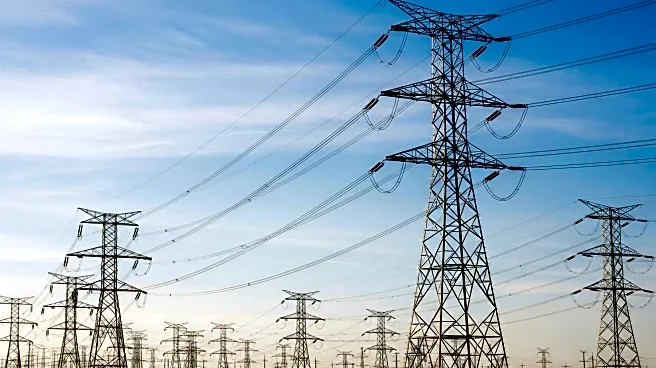What is the story about?
What's Happening?
The Federal Energy Regulatory Commission (FERC) is advocating for the integration of transmission planning and interconnection processes to address challenges in the electric industry. Rapid load growth, backlogged interconnection queues, and limited transmission buildout are exacerbating reliability concerns and raising electricity bills. FERC emphasizes the importance of open access and competitive wholesale electricity markets, which have historically kept energy costs affordable. The integration aims to modernize and harmonize planning processes to meet current demands while preserving the benefits of open access and competition.
Why It's Important?
The integration of transmission and interconnection planning is crucial for accommodating rapid load growth and ensuring reliable electricity supply. This approach could reduce costs and delays associated with building new resources, benefiting consumers and the energy industry. The initiative addresses foundational questions about system planning, project prioritization, and cost allocation, which are critical for meeting new demand and maintaining grid stability. Successful integration could enhance the efficiency of the electric grid, support the growth of data centers, and facilitate the transition to renewable energy.
What's Next?
FERC, states, and industry participants are exploring reforms to integrate transmission planning and interconnection processes. Regional Transmission Organizations (RTOs) and Independent System Operators (ISOs) are expected to lead the design and implementation of coordinated processes. The integration aims to provide cost certainty for interconnecting resources, reduce queue timelines, and enable new resources to respond to market signals. The details of the integration process will be crucial in ensuring open access standards and delivering substantial benefits to customers.
Beyond the Headlines
The integration of planning processes reflects a broader shift towards more efficient and sustainable energy systems. It highlights the need for innovative solutions to address complex challenges in the energy sector. The initiative could set a precedent for other regions and countries facing similar issues, influencing global energy policies and practices. The ethical and cultural dimensions of energy planning are also significant, as they relate to the equitable distribution of resources and the long-term impact on society.















